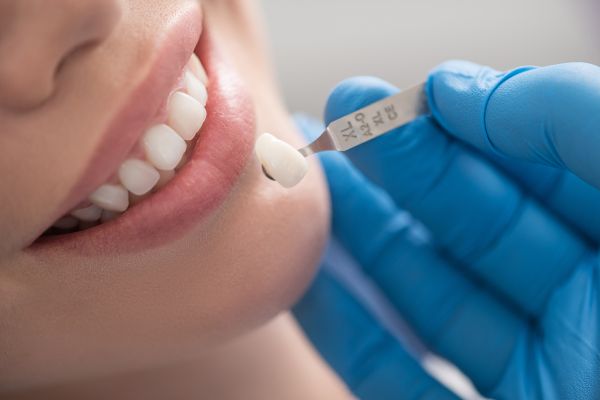Dental Veneers: An Overview for People Debating Getting the Procedure

A dental veneers overview will be beneficial to help decide whether or not getting this thin wafer of porcelain permanently bonded to your teeth is a good or bad idea. First, let us define what veneers are. Dental veneers or dental porcelain laminates are custom-made, tooth-colored shells designed to cover your teeth. They help you achieve the look that you want by improving your smile. Because they look like natural teeth, dental veneers are used to correct various dental issues such as:
- Teeth stains that cannot be whitened by bleaching
- Chipped and worn teeth
- Crooked and misshapen teeth
- Uneven spaces
- A large gap between the upper front teeth
When you get veneers, it usually requires three trips to the dental clinic. First, you need to go in for a consultation. The other two visits are for construction and application. One or more teeth can undergo the veneering process simultaneously.
Pros and cons of dental veneers
It is important to know that getting veneers has its advantages and disadvantages. Since they are permanent, you need to carefully weigh the pros and cons before you get them. This dental veneers overview will help you decide if the procedure is for you.
Pros
Whiten your teeth. Veneers are an easy way to whiten your teeth for good. They are also stain-resistant, so you do not have to worry about discolorations in the future.
Fix cosmetic problems. Veneers are the perfect solution if you have slightly crooked or gapped teeth but do not want to wear braces. They will not fix the issue, but nobody will know. It will be your and your dentist’s little secret.
Replace damaged enamel. Veneers are an excellent treatment for damaged enamel. Plus, they are aesthetically pleasing.
Cons
Expensive. Their price varies on the dentist, location and number of teeth restored. One thing is for sure: They are expensive.
Increased sensitivity. You may be more sensitive to hot and cold temperatures for a few days after the procedure, but the sensitivity will go away.
Irreversible. Veneers are a permanent solution. They will keep your teeth and smile looking great for years to come.
As part of the dental veneers overview, it is vital that you know the things that you need to consider before and after getting veneers. Discuss all of your expectations and treatment options with your dentist for all of your dental care.
Before you get veneers
First and foremost, your teeth and gums must be healthy. Before your veneers are placed, visit your dentist to treat any disease or decay. Secondly, veneers are thin, and they may chip or break. If you clench or grind your teeth, they may not be the right solution for your dental issues. Thirdly, veneers may come loose over time. In this case, you may need new ones.
After you get veneers
After getting your veneers, you need to visit your dentist regularly to keep your gums and teeth healthy. These porcelain laminates can chip or break under pressure, so avoid biting your fingernails and chewing on hard objects. It may also take a few days before you get used to the feel of your veneers, but let the dentist know right away if your bite does not feel correct after they have been placed. Lastly, brush and floss each day to avoid getting cavities.
Dental veneers are an excellent way to hide discolored, crooked and gapped teeth. However, make sure you know the pros and cons before getting them. Remember, these laminates are permanent.
Contact our office today!
The best thing to do is make an appointment for a consultation with our dental office. We will help in guiding you to make the best decision to reach the goal you have for your teeth and oral health. Contact us today!
Request an appointment in our Grand Blanc office here: https://smilefreshdentalgrandblanc.com.
Related Posts
A broken tooth can affect both oral health and confidence. Whether caused by biting into something hard, an accident, or underlying decay, prompt dental care is essential to prevent further damage and restore normal function. Fortunately, modern dentistry provides several reliable treatments that repair structural damage and rebuild a natural-looking smile. A cosmetic, family, or…
Adult orthodontics has become an increasingly popular solution for individuals looking to improve their oral health and the smile's appearance. Dental professionals offer a variety of treatment options to address the unique needs of adult patients. The following guide will explore the most common treatments used in adult orthodontics, highlighting their benefits and effectiveness in…
Traditional dentures can be either full or partial. These are custom-fit restorations that can improve your smile, bite, and chew. Complete and partial dentures are traditional. Understanding how these prostheses vary can help you decide which one can work for you. Here are the differences between complete and full dentures.These are for people who do…
Dentures can restore confidence in one’s smile and quality of life for those who have suffered tooth loss. However, it may not happen overnight, and getting used to dentures will take some time. Still, many denture wearers find the benefits of dentures are worth the wait. Though it may take some time to acclimate to…
